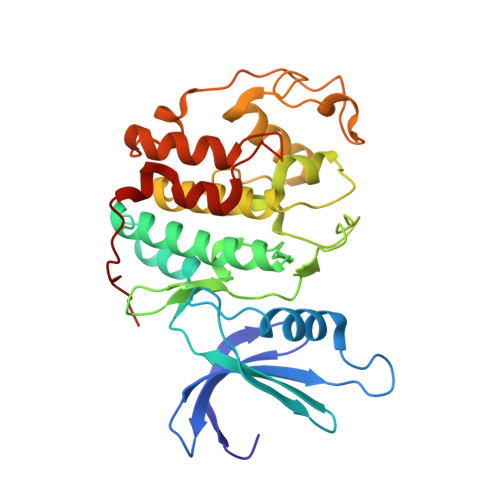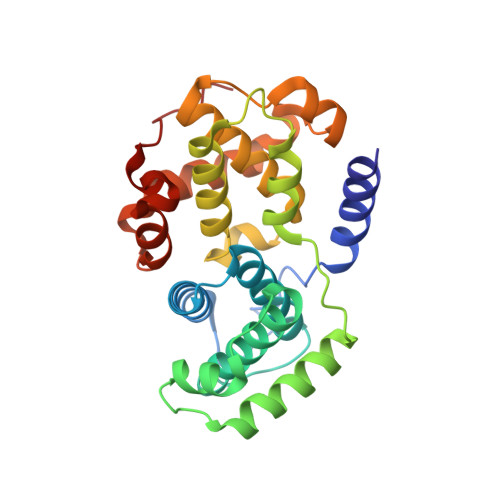2-(6-Phenyl-1H-indazol-3-yl)-1H-benzo[d]imidazoles: Design and synthesis of a potent and isoform selective PKC-zeta inhibitor.
Trujillo, J.I., Kiefer, J.R., Huang, W., Thorarensen, A., Xing, L., Caspers, N.L., Day, J.E., Mathis, K.J., Kretzmer, K.K., Reitz, B.A., Weinberg, R.A., Stegeman, R.A., Wrightstone, A., Christine, L., Compton, R., Li, X.(2009) Bioorg Med Chem Lett 19: 908-911
- PubMed: 19097791
- DOI: https://doi.org/10.1016/j.bmcl.2008.11.105
- Primary Citation of Related Structures:
3EZR, 3EZV, 3F5X - PubMed Abstract:
The inhibition of PKC-zeta has been proposed to be a potential drug target for immune and inflammatory diseases. A series of 2-(6-phenyl-1H indazol-3-yl)-1H-benzo[d]imidazoles with initial high crossover to CDK-2 has been optimized to afford potent and selective inhibitors of protein kinase c-zeta (PKC-zeta). The determination of the crystal structures of key inhibitor:CDK-2 complexes informed the design and analysis of the series. The most selective and potent analog was identified by variation of the aryl substituent at the 6-position of the indazole template to give a 4-NH(2) derivative. The analog displays good selectivity over other PKC isoforms (alpha, betaII, gamma, delta, epsilon, mu, theta, eta and iota/lambda) and CDK-2, however it displays marginal selectivity against a panel of other kinases (37 profiled).
Organizational Affiliation:
Department of Medicinal Chemistry, Pfizer Global Research and Development, 700 Chesterfield Pkwy, AA236, Chesterfield, MO 63017, USA. john.i.trujillo@pfizer.com


















